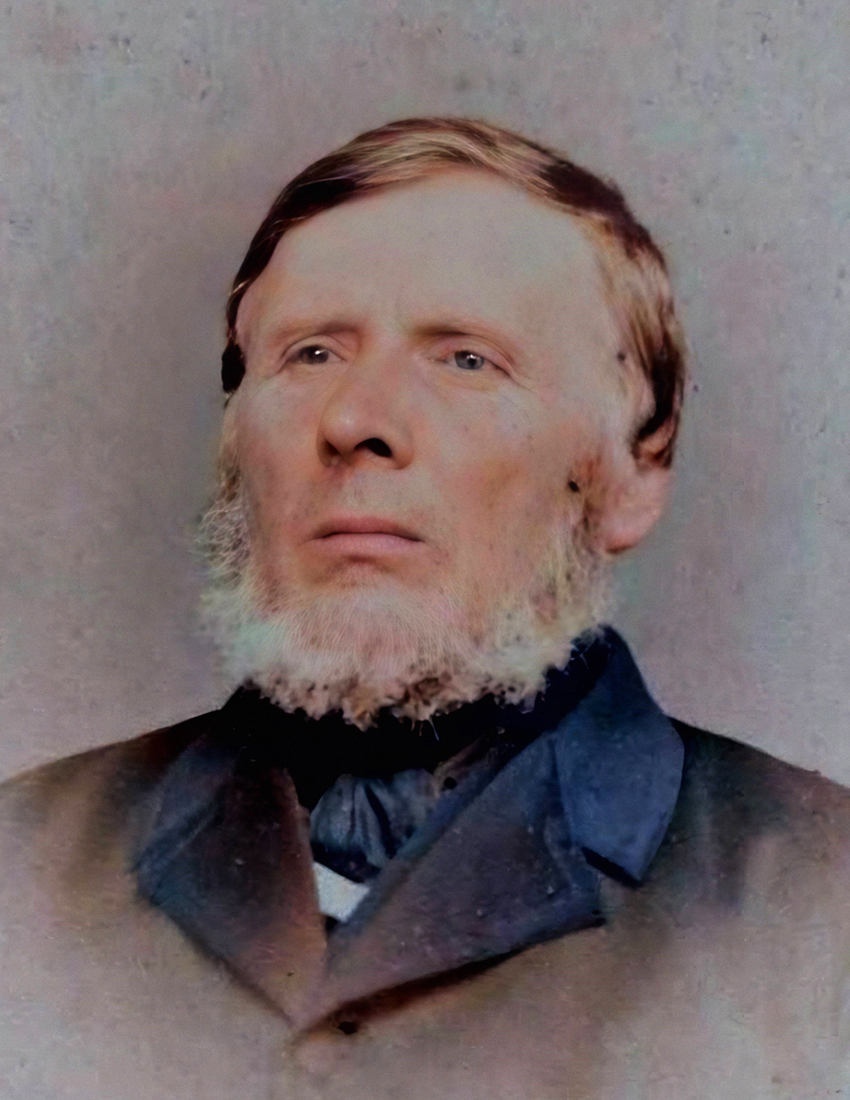Born: January 14, 1811, Graienyn, North Wales.
Died: January 25, 1887, Holywell, Flintshire, Wales.
Buried: Saint Peters Church, Holywell, Flintshire, Wales.
Rowland Prichard

Hymns by Rowland Prichard
Rowland Huw Prichard: The Enigmatic Welsh Weaver of Hymns
Sometime in the late 1820s, in a modest Welsh cottage, a teenage boy sat hunched over a worn table, quill in hand. His brow furrowed in concentration as he hummed softly, testing the notes that flowed from his mind to the parchment before him. Little did Rowland Huw Prichard know that the melody taking shape under his pen – crafted before he’d even reach his twentieth year – would one day resound through churches across the globe.
This moment of quiet creation would birth “HYFRYDOL,” a hymn tune destined to carry the praises of millions. Yet, for all the impact of his work, Prichard remains a figure shrouded in mystery. What little we know of this unassuming composer only deepens the intrigue surrounding his life and legacy.
Born in 1811 in Graienyn near Bala, Prichard’s story is one of humble beginnings and lasting impact. From the rhythmic clacking of looms to the stirring harmonies of Welsh chapels, his world was steeped in the music of everyday life. It was a symphony that would shape his greatest work and leave a profound mark on the landscape of sacred music, even as the details of his personal life remain elusive.
A Voice Raised in Song
While much of Prichard’s life is lost to history, we do know that music flowed through his veins. His grandfather, Rowland Huw, was a famous bard, whose poetic legacy no doubt kindled the musical spark in young Rowland. As Prichard grew, so too did his musical gifts. Blessed with a fine voice, he soon found himself directing choirs, his hands weaving melodies as deftly as they would later guide threads through a loom.
The local chapels rang with the sound of Prichard’s voice and the harmonies he coaxed from his singers. His dedication to the cause of music and congregational singing was evident in every note. These early experiences as a choir director were more than just a prelude to his composing career – they were the very essence of his lifelong passion for sacred music.
It was during these formative years, before he had even reached his twentieth birthday, that Prichard penned his most enduring work. The tune “HYFRYDOL” flowed from his pen, a melody of such simple beauty that it would eventually become the setting for beloved hymns like “Alleluia! Sing to Jesus.”
The Singer’s Friend
One of the few concrete facts we have about Prichard’s life is the publication of his songbook. In 1844, he released “Cyfaill y Cantorion” (The Singer’s Friend), a collection aimed at children. This book, brimming with forty hymn tunes – many of his own composition – was a clear reflection of Prichard’s belief in the power of music to shape young hearts and uplift congregations.
The years that followed saw Prichard’s melodies scattered like seeds across Wales. His compositions graced the pages of Welsh periodicals and hymnals, each one a gift to the congregations that would lift their voices in praise. Publications like “Haleliwia” (1849) and “Haleliwia Drachefn” (1855) carried his hymn-tunes and anthems to an ever-widening audience. Yet, beyond these musical contributions, the details of Prichard’s life during this period remain frustratingly vague.
From Loom to Legacy
As the twilight of his life approached, we catch one final glimpse of Prichard. In 1880, he found himself in Holywell, tending looms at the Welsh Flannel Manufacturing Company. It was a humble occupation for a man whose melodies had touched so many, yet perhaps fitting for one whose life had been spent weaving both cloth and song.
Rowland Huw Prichard passed from this world in 1887, leaving behind a legacy far greater than he could have imagined. His tune “HYFRYDOL” had taken flight, crossing oceans and centuries to become one of the most beloved hymn melodies of all time.
Today, as congregations around the world lift their voices to sing “Alleluia! Sing to Jesus,” they are unknowingly paying tribute to a Welsh weaver who, with simple faith and profound gift, created music that continues to stir the soul and lift the spirit. Prichard’s life work – his unwavering dedication to music and congregational singing – lives on in every church where his melodies ring out, a lasting echo of his humble genius.
The mystery surrounding much of Prichard’s life only serves to heighten the poignancy of his musical legacy. In the end, perhaps it’s fitting that we know so little about the man himself. For in the soaring notes of “HYFRYDOL,” we hear not just a composer, but the voice of a people, a culture, and a faith – a melody that transcends the boundaries of time and biography to touch the hearts of all who hear it.

